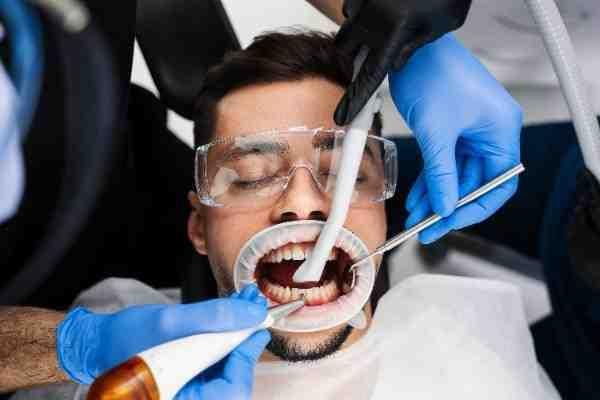Dental emergencies often arise without warning—whether it’s a sudden toothache during dinner or a chipped tooth after a fall. These incidents are not only painful but can also cause stress and confusion about what steps to take next. Recognising the signs of a dental emergency and acting quickly can prevent further complications, save your teeth, and reduce your overall treatment time.
This blog will explore the most common dental emergencies, immediate steps you can take, and how to find the right help, including the role of a hygienist in Hereford in preventing emergencies in the first place.
Identifying a Dental Emergency
Not all dental problems require urgent attention, but certain conditions should never be ignored. If you’re experiencing severe pain, bleeding, or trauma, it’s likely that you need to see an emergency dentist in Hereford immediately.
The most frequent dental emergencies include:
- Toothache: Persistent, throbbing pain could indicate infection or decay.
- Chipped or broken teeth: May be painful and expose nerves or sharp edges.
- Knocked-out teeth: A critical emergency—requires immediate treatment.
- Dental abscess: A painful swelling caused by infection that can spread.
- Lost fillings or crowns: Leaves the tooth vulnerable and sensitive.
- Soft tissue injuries: Cuts to the tongue, cheeks, or gums can bleed heavily.
These issues require prompt intervention. If left untreated, they can result in permanent damage or more complex treatment later.

Quick First-Aid for Common Dental Emergencies
Before you reach a dental clinic, knowing how to manage the issue temporarily at home can make a significant difference in the outcome.
| Emergency Type | What to Do Immediately |
| Toothache | Rinse mouth with warm salt water; apply a cold compress; avoid aspirin |
| Chipped/Broken Tooth | Save broken pieces, rinse mouth, and apply cold compress |
| Knocked-Out Tooth | Handle tooth by the crown; rinse gently and place in milk or back in socket |
| Lost Filling or Crown | Cover with sugar-free chewing gum or temporary dental cement |
| Bleeding Gums or Injury | Apply gauze and firm pressure; rinse with salt water if bleeding subsides |
| Abscess or Swelling | Rinse with mild saltwater; do not attempt to drain; seek dental care quickly |
These are stopgap measures to reduce pain or prevent further damage. Always follow up with an emergency dentist in Hereford as soon as possible.
How to Find an Emergency Dentist in Hereford
Acting fast during a dental emergency is key to a good outcome. Here’s how you can locate a reliable emergency dentist in Hereford without delay:
- Call NHS 111: They will help assess your symptoms and guide you to the nearest emergency clinic.
- Search online for local dentists with emergency slots or weekend availability.
- Keep contact information for a local dental practice stored in your phone or wallet.
- Ask friends, neighbours, or co-workers for trusted recommendations.
Many practices in Hereford offer same-day emergency appointments, especially for cases involving trauma or infection.
Preventing Emergencies with a Hygienist in Hereford
Many dental emergencies can be prevented through regular care and early detection. This is where a hygienist in Hereford becomes essential. By scheduling routine hygiene appointments, you reduce the risk of developing serious oral issues that may later require emergency intervention.
Benefits of Visiting a Hygienist:
- Plaque and tartar removal: Prevents decay and gum disease, which are leading causes of emergencies.
- Gum health checks: Catching early signs of gingivitis or periodontitis before they worsen.
- Oral hygiene education: Proper brushing and flossing techniques to protect against decay.
- Customised advice: Especially for patients with braces, dental implants, or medical conditions like diabetes.
- Fissure sealants and fluoride treatments: Strengthen teeth and prevent cavities.
Seeing a hygienist in Hereford regularly builds long-term protection for your teeth and gums, reducing the chance of surprise issues.
When to Seek Help Outside Normal Hours
Dental pain and trauma rarely follow a 9-to-5 schedule. Knowing how to get help outside of working hours can make all the difference.
- Call NHS 111 for urgent guidance and to locate after-hours services.
- Some dentists in Hereford offer out-of-hours or weekend cover—always check online or on voicemail.
- Hospital emergency departments are only appropriate for extreme cases, such as jaw fractures, uncontrollable bleeding, or facial swelling that affects breathing.
If your situation is non-life-threatening but urgent, a dedicated emergency dentist in Hereford is usually your best bet.
Typical Emergency Dental Treatments
Treatment during an emergency dental visit primarily focuses on relieving discomfort, stabilising the problem, and planning appropriate follow-up care. Here are the most common emergency conditions and how they’re typically managed:
- Toothache: Depending on the underlying cause, the dentist may offer pain relief and prescribe antibiotics if there’s an infection. Further treatment could involve a root canal or extraction if the tooth is beyond repair.
- Knocked-Out Tooth: If the tooth is brought in quickly and preserved correctly, it may be reinserted and stabilised with a splint. If reimplantation isn’t possible, options like dental implants or bridges may be discussed.
- Broken Tooth: Minor fractures might be repaired using bonding, while more significant damage may require a dental crown. In extreme cases where the tooth is unsalvageable, extraction may be necessary.
- Abscess: Treatment often involves draining the abscess to relieve pressure and prescribing antibiotics. In many cases, a root canal may be required, or in severe situations, surgical intervention.
- Lost Filling or Crown: The affected area can be covered temporarily to protect the tooth, followed by a permanent restoration during a follow-up visit.
Emergency dentists are trained to act quickly to control pain, prevent further damage, and provide a clear path for any additional care that may be needed.
Tips for Avoiding Dental Emergencies
Prevention is always better than cure. Here are some practical ways to reduce your risk:
- Visit your dentist and hygienist in Hereford regularly for check-ups and cleanings.
- Brush and floss daily to maintain oral hygiene.
- Wear a mouthguard if you play contact sports or grind your teeth at night.
- Avoid chewing on hard items like ice, pens, or fingernails.
- Replace worn fillings or crowns before they break or fall out.
A proactive approach to oral health can save you both pain and expense in the long term.

Dental Emergencies at a Glance
| Aspect | Details |
| Common Emergencies | Toothache, chipped teeth, abscesses, knocked-out teeth |
| At-Home First Aid | Salt rinses, cold compress, preserve broken/knocked-out tooth |
| Emergency Dentist Access | NHS 111, online search, local dental clinics in Hereford |
| Preventive Care Importance | Regular visits with a hygienist in Hereford |
| Typical Emergency Treatments | Pain relief, root canal, reimplantation, temporary restorations |
| Prevention Tips | Oral hygiene, regular visits, mouthguards, replacing worn restorations |
Conclusion
Dental emergencies can happen to anyone—but how you respond can determine the outcome. Prompt action and access to a reliable emergency dentist in Hereford are key to reducing pain, preventing complications, and preserving your oral health. Just as important is prevention: routine care with a hygienist in Hereford helps identify potential issues early, so they don’t become painful surprises later. If you’re looking for immediate support or want to strengthen your dental health against future emergencies, EDA Group is here to provide expert, compassionate care when it matters most.

